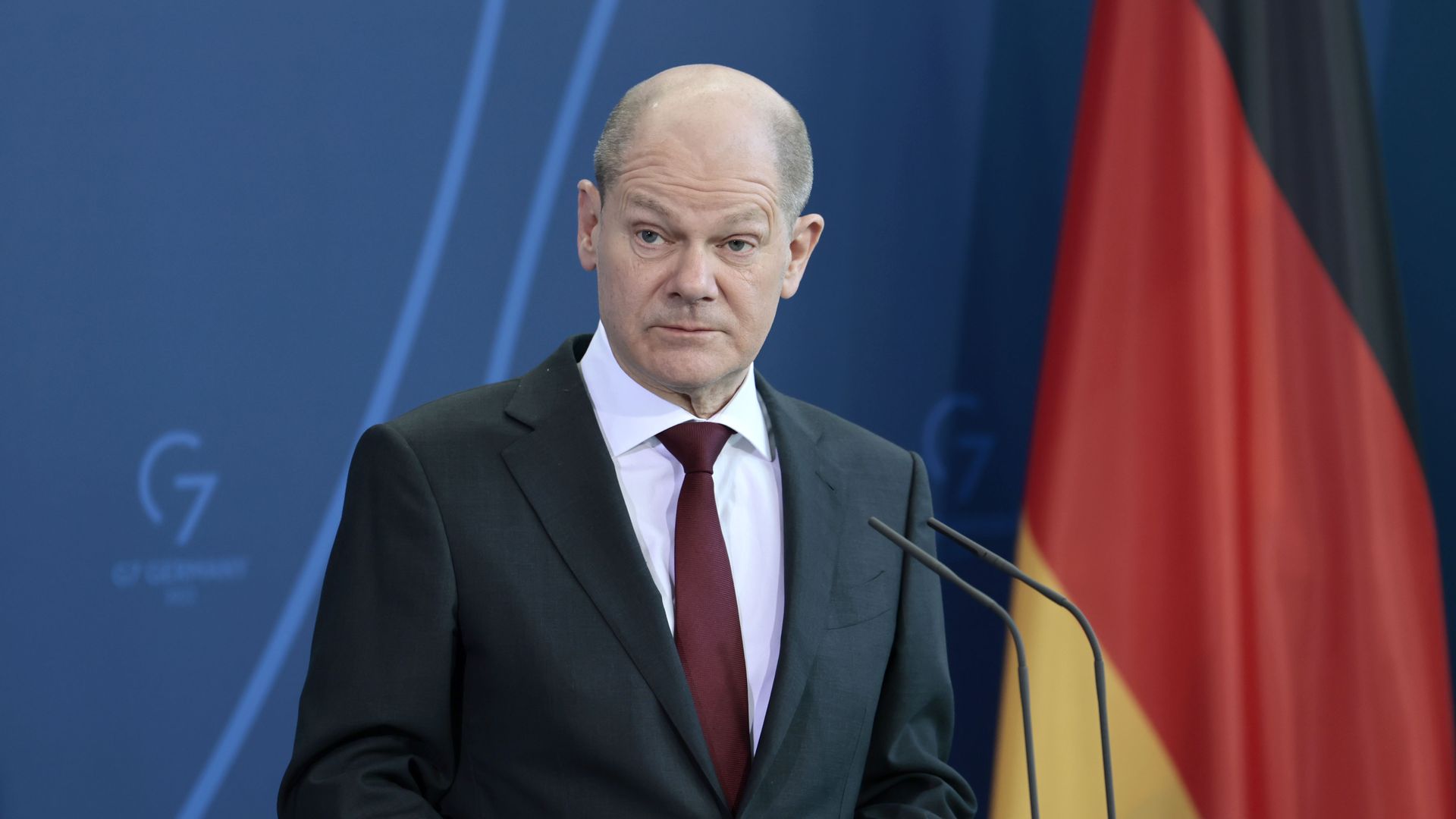Europeans throw cold water on possibility of Russian energy ban
Add Axios as your preferred source to
see more of our stories on Google.

German Chancellor Olaf Scholz. Photo: Hannibal Hanschke/Pool/Getty Images
Top European leaders said Monday that they recognize the need to reduce the continent's dependence on Russian energy but stressed that an immediate embargo would not be feasible.
Why it matters: Under pressure from Congress and the Ukrainian government, the Biden administration may move to ban Russian oil imports on a unilateral basis if the U.S. cannot immediately bring along its European allies.
Driving the news: German Chancellor Olaf Scholz, whose country relies on Russia for two-thirds of its natural gas and more than a third of its oil, said Monday that the EU "has deliberately exempted energy supplies from Russia from sanctions."
- "At the moment, Europe's supply of energy for heat generation, mobility, power supply and industry cannot be secured in any other way," Scholz said, calling Russian imports of "essential importance" to Europe's economy.
- The chancellor said Germany and the EU are working on ways to reduce reliance on Russian energy but that this "cannot be done overnight."
Dutch Prime Minister Mark Rutte echoed that sentiment at a press conference with U.K. Prime Minister Boris Johnson and Canadian Prime Minister Justin Trudeau, saying, "The painful reality is that we are still very much dependent on Russian gas and oil."
- Even Johnson, whose country consumes little Russian gas and has been a leader in calling for the toughest sanctions, told reporters, "You can't simply close down use of oil and gas overnight even from Russia — it is not something every country around the world can do."
What to watch: Amid speculation that the U.S. will soon announce an oil embargo, President Biden will speak with Scholz, Johnson and French President Emmanuel Macron on Monday morning.
The big picture: The Biden administration is exploring ways to unlock more global oil supplies to ease the shock to gas prices, which have already reached an average of more than $4 per gallon in the U.S.
- That includes negotiating with the leadership of Saudi Arabia, which Biden had pledged to make a "pariah" after the murder of Jamal Khashoggi, as well as heavily sanctioned Venezuela.
- The U.S. is also expected to reach a new nuclear deal with Iran in the coming days, potentially giving another U.S. adversary the ability to ramp up its oil exports.
Go deeper:
